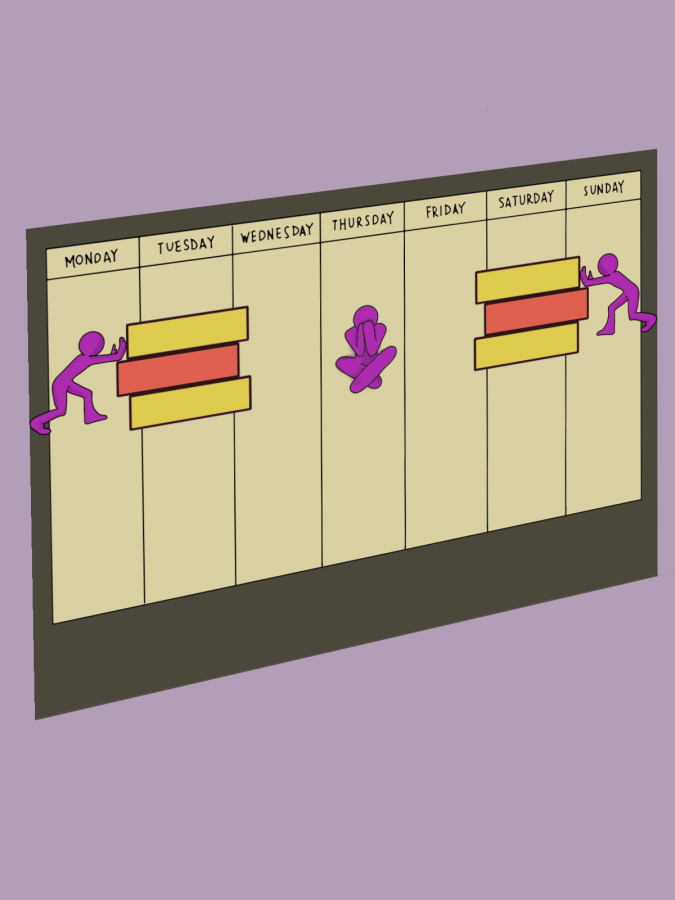Earning while e-learning is harder than it has to be
October 28, 2020
For many college students, balancing work and school is a familiar struggle. According to a 2015 report by Georgetown University’s Center on Education and the Workforce, 70-80% of undergraduate college students have a job. At UT, over 10,000 Longhorns are employed by the University alone every semester.
With many classes in the 2021 spring course schedule taking place remotely, deadlines for asynchronous assignments must be compatible with students’ hectic schedules. To better accommodate students who work on the weekends, professors should consider making some weekly assignments due in the middle of the week rather than the weekend.
Some professors regularly schedule asynchronous work to be due on the weekends. While it may be tempting to front-load students with homework on Saturdays and Sundays, this disadvantages anyone who works on those days.
“A lot of my classes rely on having homework due on the weekends because they assume everyone has time to do it on the weekends,” biology sophomore Leyla Stallings said.
On Fridays and Saturdays, Stallings works at Chick-fil-A from 5 p.m. to 1 a.m. She said weekend deadlines exacerbate the stress that accompanies her busy schedule.
“Usually, a lot of my asynchronous homework is due on Saturday or Sunday night,” Stallings said. “I can’t do it on Friday and Saturday, so I have to do it all on Sunday.”
Exercise science junior Janet Koroma faces a similar challenge as an employee at The Cheesecake Factory. For Koroma, weekend deadlines not only serve as a source of stress, but they also impair her ability to learn.
“Usually, when I have something due, it’ll be (due) at like Monday at 8 a.m.,” Koroma said. “If I work two double shifts (on the weekend), I don’t have time to do it. If I end up forcing myself to do it before the due date, I’m really tired because I’m either doing it super early in the morning or late at night.”
For students who work, completing weekend assignments ahead of time is not a feasible option because new material is generally taught throughout the week under the assumption that students have time to complete homework during the weekend.
“We do a bunch of stuff for the current (unit) up until Friday, and the turnaround is too soon,” Koroma said.
This problem is easily solved by pushing some deadlines to the middle of the week. That way, students who are busy on the weekends have the opportunity to thoroughly complete asynchronous assignments while those who aren’t can continue their current weekly routines.
Some professors have already successfully implemented this initiative.
Jennifer Fritz, a biology assistant professor of instruction, restructured her Introductory Biology I class after receiving feedback via a midsemester survey. Previously, two weekly assignments were due Sunday at midnight. Now one of those assignments is due Tuesday morning.
“It’s always important to accommodate the schedules of our students, especially in a high-stress time,” Fritz said. “I realized for students who work, that was a deadline we could move around.”
Koroma, a student in Fritz’s class, agrees that this new deadline is more compatible with her weekly schedule.
“It made things easier for me to not have both things due on Sunday,” Koroma said. “I’ll have class in the morning on Monday, but I don’t have a lot of classes back to back, so I can do it in between those classes.”
As Fritz’s new deadline demonstrates, a simple adjustment can significantly reduce stress in many students’ lives. I urge professors to be more mindful when determining deadlines for asynchronous assignments.











